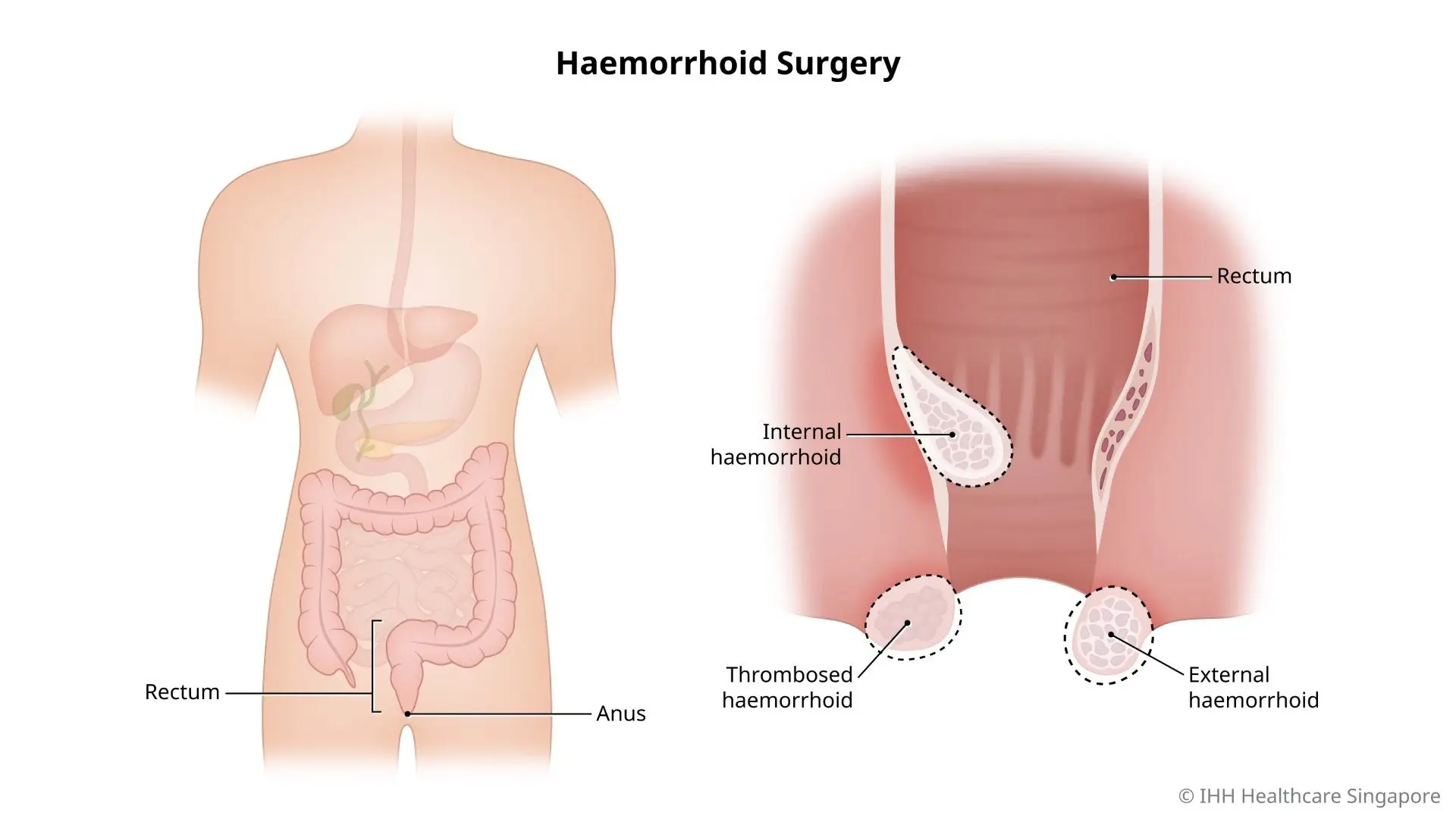Haemorrhoid Surgery (Piles Removal)
What is a haemorrhoidectomy?
Haemorrhoidectomy, or haemorrhoid surgery, is a procedure to remove haemorrhoids (also known as piles).
Haemorrhoids, or piles, are enlarged, congested blood vessels inside your anus (the opening of your bowel). It can cause discomfort, pain and bleeding, especially when piles protrude out of the anus or a blood clot forms inside a pile (also known as a thrombosed haemorrhoid).
Haemorrhoids are present in everyone, but they are only considered abnormal when the haemorrhoidal vessels bleed or become enlarged. They can occur inside the anus (internal haemorrhoids) or just outside your anus (external haemorrhoids). Thrombosed haemorrhoids resulting from a blood clot are the most unpleasant and painful.
How it works
A haemorrhoid surgery removes large external haemorrhoids and internal haemorrhoids that have prolapsed or are causing problems.
Your doctor can perform surgery to remove haemorrhoids using different methods. This may involve either:
- Cutting the haemorrhoids off with an electric blade
- Stapling or sealing haemorrhoids with a laser beam
Why do you need haemorrhoid surgery?
Haemorrhoid is a common condition with risk factors revolving around lifestyle habits.
Treatment options include lifestyle changes and home remedies. In the early stages, medication and local treatment such as rubber band ligation can help to relieve symptoms.
If the haemorrhoids have grown too large or painful, your doctor may recommend surgery to remove the haemorrhoids and provide long term relief. This is especially when medications and lifestyle changes have failed to address the symptoms adequately.
Before deciding on any procedure to treat your haemorrhoids, discuss with your surgeon the side effects, complications and long-term results.
What are the risks and complications of haemorrhoid surgery?
Haemorrhoid surgery is a safe, effective treatment for piles. Complications from surgery are uncommon, but can include:
- Infection
- Bleeding
- Stricture (narrowing of the anus due to scar tissue)
- Urinary retention







